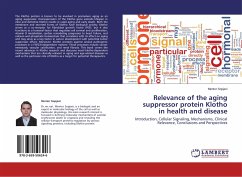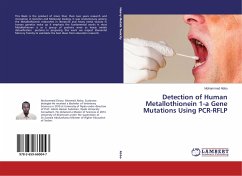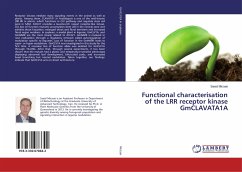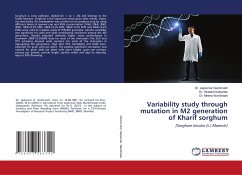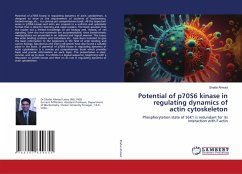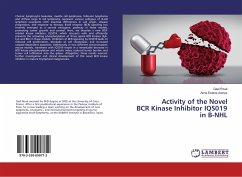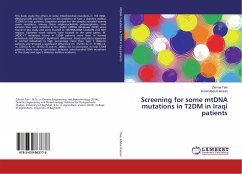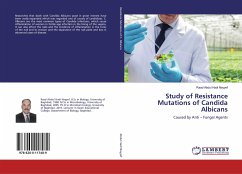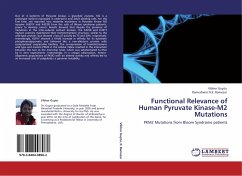
Functional Relevance of Human Pyruvate Kinase-M2 Mutations
PKM2 Mutations from Bloom Syndrome patients
Versandkostenfrei!
Versandfertig in 6-10 Tagen
32,99 €
inkl. MwSt.

PAYBACK Punkte
16 °P sammeln!
Out of 4 isoforms of Pyruvate kinase; a glycolytic enzyme, M2 is a prototype isoform expressed in embryonic and adult dividing cells. For the first time, we reported two missense mutations in Pyruvate kinase M2 isozyme (H391Y and K422R) from the cells of Bloom syndrome patients, prone to develop cancer. Results showed that despite the presence of mutations in the inter-subunit contact domain, the K422R and H391Y mutant proteins maintained their homotetrameric structure, similar to the wild-type protein, but showed a loss of activity by 75 and 20%, respectively. Interestingly, H391Y showed a 6-...
Out of 4 isoforms of Pyruvate kinase; a glycolytic enzyme, M2 is a prototype isoform expressed in embryonic and adult dividing cells. For the first time, we reported two missense mutations in Pyruvate kinase M2 isozyme (H391Y and K422R) from the cells of Bloom syndrome patients, prone to develop cancer. Results showed that despite the presence of mutations in the inter-subunit contact domain, the K422R and H391Y mutant proteins maintained their homotetrameric structure, similar to the wild-type protein, but showed a loss of activity by 75 and 20%, respectively. Interestingly, H391Y showed a 6-fold increase in affinity for its substrate phosphoenolpyruvate and behaved like a non-allosteric protein with compromised cooperative binding. The co-expression of homotetrameric wild type and mutant PKM2 in the cellular milieu resulted in the interaction between the two at the monomer level, which was substantiated further by in vitro experiments. Interestingly, in a unique observation, hetero-oligomeric populations of PKM2 with an altered activity and affinity led to an increased rate of polyploidy i.e genomic instability.



